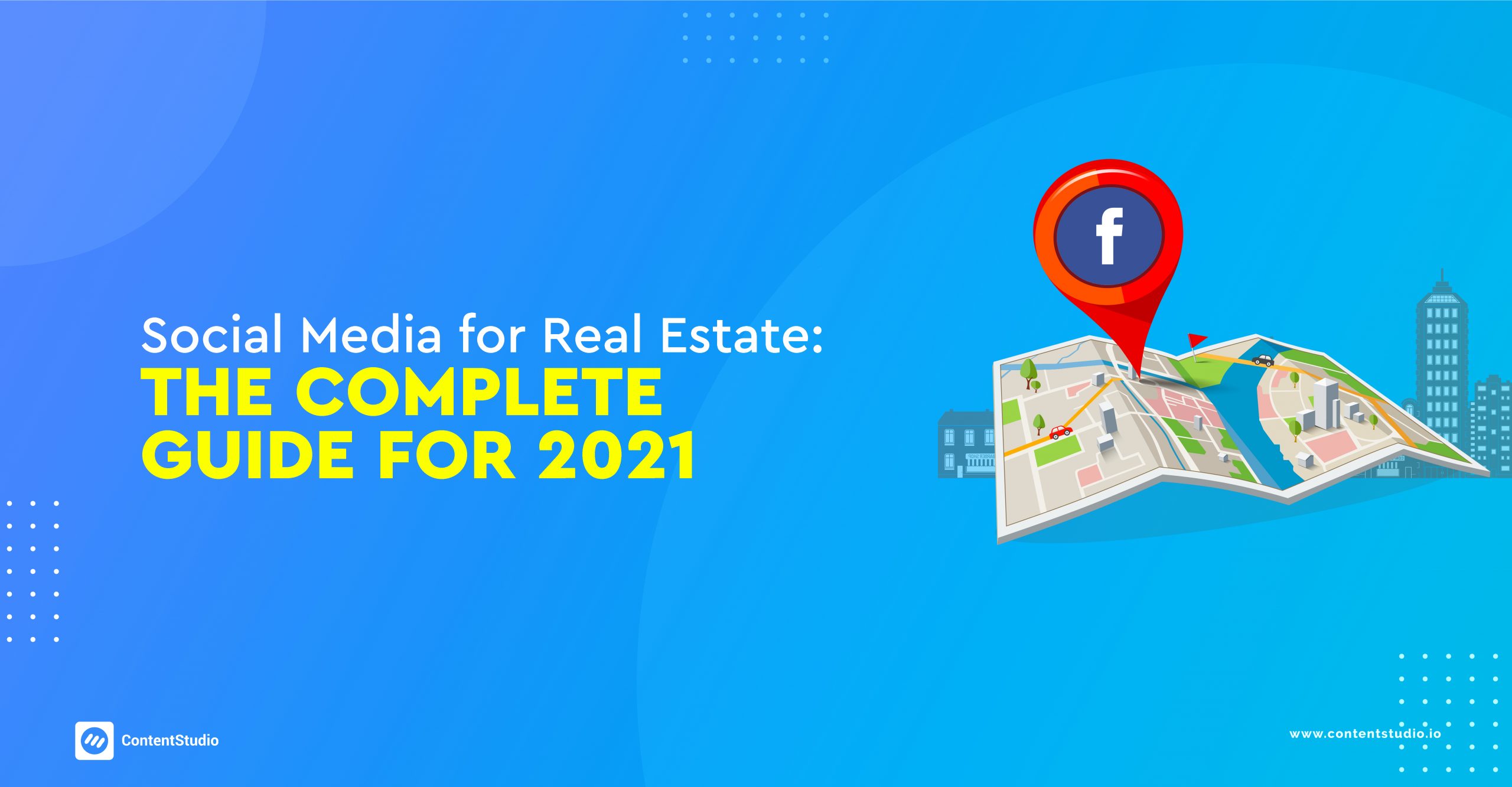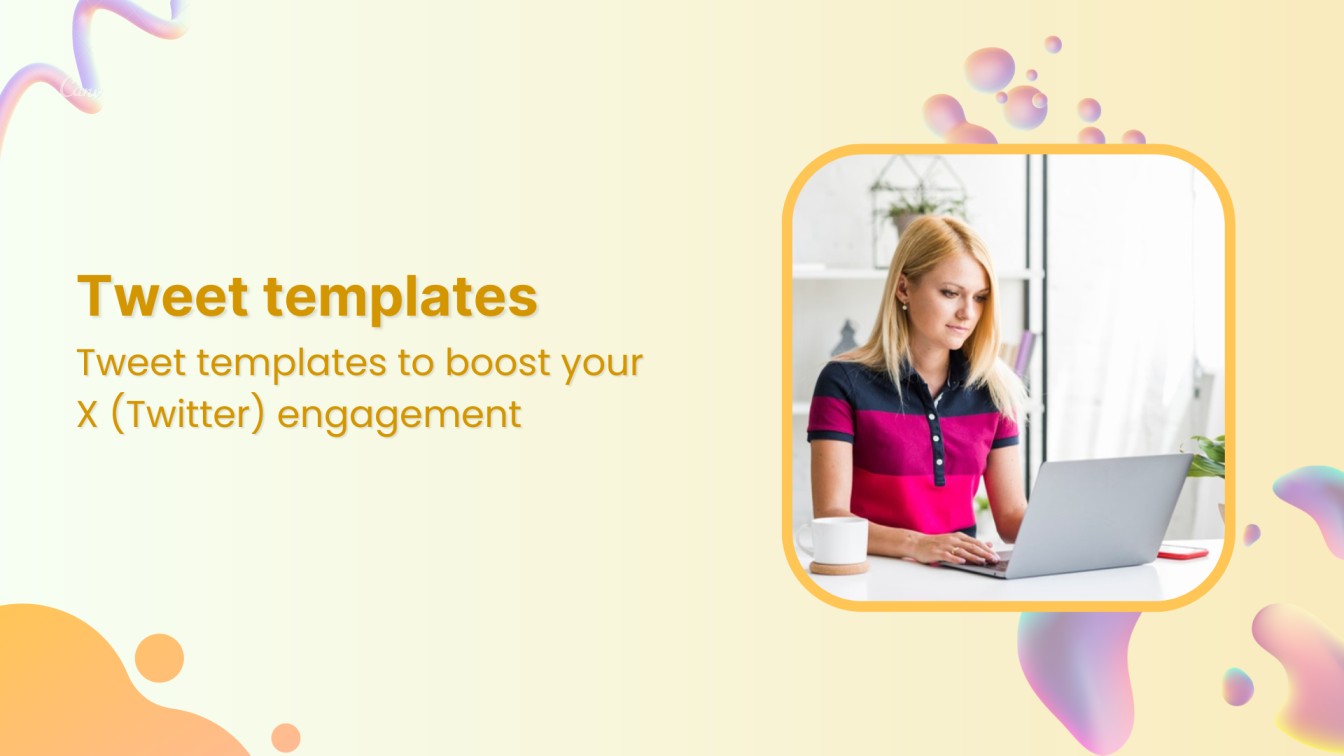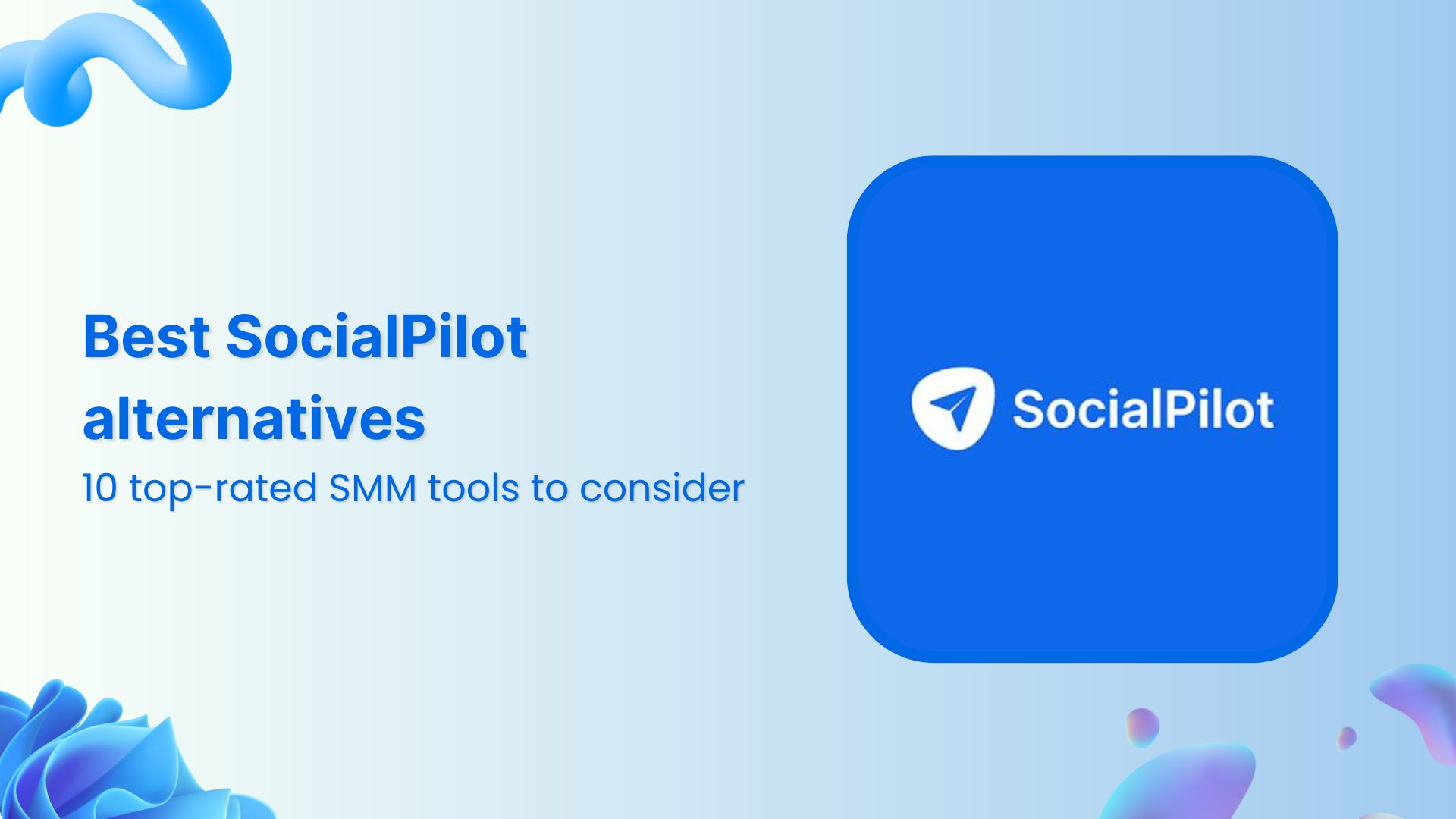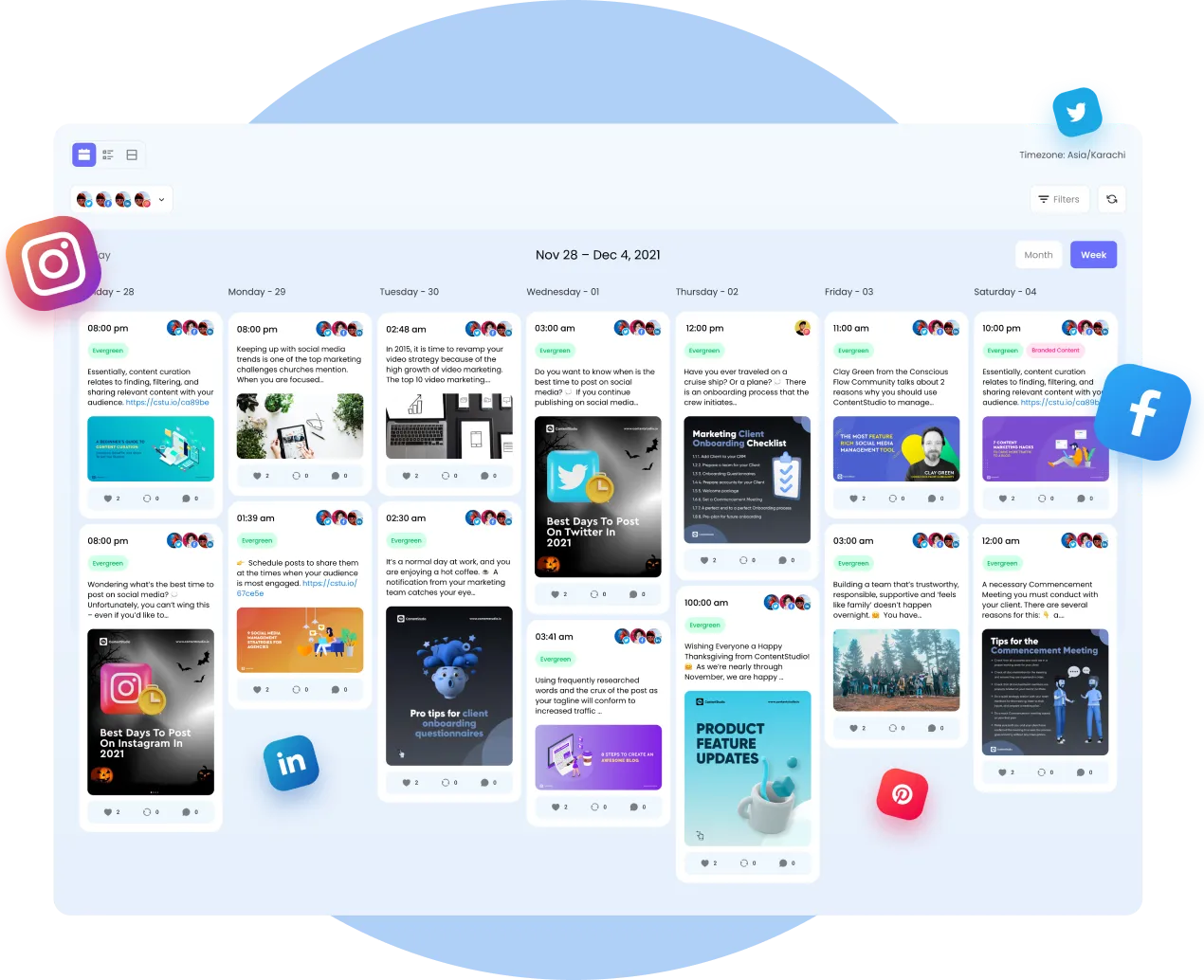Social media has disrupted several areas of business such as sales, marketing, advertising, real estate, and more. People jump to social media when they’re curious about something. No wonder influencers get so much engagement on social media when they ask about something. We all have asked social media things we want to know.
Have you had a chance to read the Yelp review of a restaurant before dine-in or to watch a review on YouTube before buying the product? It’s highly unlikely that in today’s day and age, someone would buy a product online and never check out the reviews before the purchase.
Nowadays, when construction experts, engineers, lawyers, and doctors are capitalizing on social media to maximize their reach, realtors are no exception. Many real estate companies have developed their websites and use paid ads to drive traffic. Some are pursuing content marketing and social media for bringing attention to their brands, but they might be a handful.
Therefore, I decided to shed some light on social media marketing for real estate businesses of all sizes. It doesn’t matter whether you haven’t gone to an open house before or you have a turnover in millions. What matters is that you want to leverage social media for your real estate business.
How to Leverage Social Media for your Real Estate Business
The question that arises here is, how would a real estate business go about capitalizing on social media?
To answer this query for you, I’d like to explain the whole thing in a few steps. But before going down that route, there are three social media success factors that you should know about.
-
Branding
No matter what your plans are with your social media marketing, if you don’t pay close attention to your branding, then it won’t work out for you. A lot of companies start putting out content on the Facebook page or Twitter account, but they never add a cover image and display picture. Branding does matter on social media, so start your social media marketing campaign with branding.
-
Content
The key to winning on social media marketing is quality content. What it means is that if you want to stand out from the crowd, put out valuable content that creates a distinction between you and your competitors. Most companies and individuals create content that they want to create, and eventually, it doesn’t go anywhere. Instead, they should create content that their audience is hungry for even it’s difficult to create.
-
Engagement
The engagement factor is one of the most underestimated metrics on social media. It’s one of those things that makes a lot of difference. Social media engagement refers to the activities, responses, and communication between the brand and followers. The higher the engagement, the quicker the growth.
So the above-mentioned social media success factors pretty much define where your real estate marketing campaign is going to go.
Now, without any further ado, let’s get into the steps involved in establishing a social media strategy for the real estate business.
A Step-by-Step Guide to Creating a Social Media Strategy for a Real Estate Business
Here we go:
#1: Identify the Suitable Platforms
There are dozens of mainstream social media platforms out there, and you can’t hop on every single one of them and expect to dominate. The best way to make the most of social media platforms begins by choosing the right platforms.
It’s not rocket science to determine what social media platform suits real estate the best. If you enjoy being on the camera, YouTube is best for you, and if you’re into photography, check out Instagram. Pinterest might be a good option for you if you’re into graphics designing. Similarly, if you love writing, then try out Medium or WattPad.
It all comes down to what your strength is as well as what your audience might be interested in.
You might want to look at a couple of factors before you decide on your social media platforms:
-
-
- Find out how comfortable you’re with the platforms
- Make sure your target audience exists on those platforms
-
There aren’t any better criteria than the above-mentioned factors to figure out what social media platform is suitable for you.
Ryan Serhant is a New York-based real estate broker. The guy is crushing it on YouTube and Instagram. He has over one million subscribers on YouTube and 1.5 million followers on Instagram. Not only does he talk about real estate, but he also shares business and entrepreneurial thoughts on his channel.
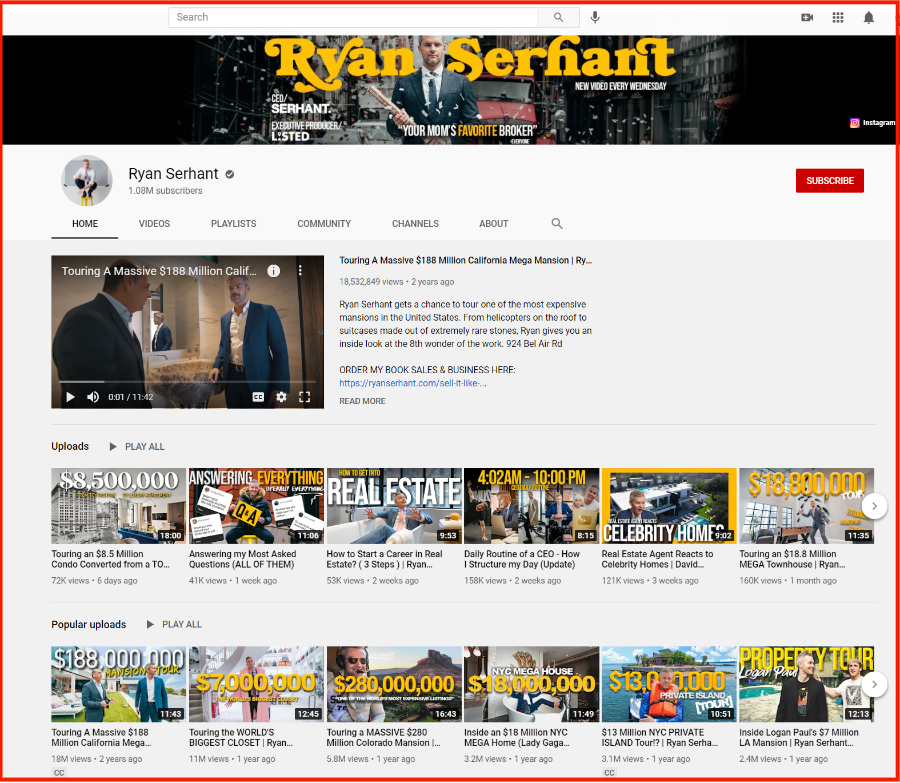


I’m pretty sure that the majority of his fans aren’t actually interested in real estate anyway. Perhaps, what got him so much attention on YouTube is his charismatic personality, on-camera confidence, and business mindset.
What I like about Ryan Serhant is that he knows where the maximum potential for real estate content is. He also has a Facebook page, but he has been doing really well on YouTube and Instagram.
To prove my point, I looked at the real estate hashtags popularity on Instagram, and here’s what I found out:



It’s quite evident that Instagram and YouTube are solid platforms for the real estate industry. However, I won’t undermine Quora, Facebook, and Twitter. It more or less depends on the individual or company’s strength. You can always add up new social media platforms to your strategy once you’ve started gaining momentum on one or two platforms.
#2: Build a Social Media Content Plan
Once you’ve identified the social media platforms, it’s time to get your hands dirty by doing the actual work. What I mean is that your social media existence won’t matter unless you don’t interact with the audience. There may be several ways to interact with the audience on social media, so you might wonder how to do it.
Well, all those communication tools such as status, comments, tweets, and stories come in handy when you provide a platform for the audience to come closer to your brand. Putting out valuable content on social media provides an avenue to attract, meet, and convince people to join in and become a part of your community.
Therefore, it won’t be wrong to say that one of the best ways to interact with the audience is by putting out good-quality content on the internet. The content is fuel to your social media vehicle, so it better be worth it.
Building a social media content plan may look simple on the outside, but it’s a bit technical on the inside. As far as social media for a real estate business is concerned, you can’t simply post a few home pictures on Instagram and Facebook and expect to engage the audience with them. People would like to know more details such as site location, building age, house size, construction quality, and much more.
Therefore, if you start to add such information to your nicely designed Facebook and Instagram posts, you’re likely to get more traction as compared to pictures-only social media posts.
If you’re wondering what type of content to make for your real estate business and where to publish on social media, then keep reading this piece as you’re about to find out about this.
3 Key Elements of Creating Social Media Content
Let’s take a look:
1. Understanding the Target Audience
Every industry’s social media strategy revolves around creating valuable content, so real estate is no exception. When you sit down to build a content plan, you need to eye the target audience and try to think about:
-
-
- Who your prospective clients are
- Where they exist on social media
- What their pain points are
- How you can help them out
- What makes you better than others
-
Once you know what they want to know or might be interested in, then you can pull this off. Otherwise, your content won’t matter no matter how much time, energy, and money you invest into creating that content.
The reason is that people won’t find it attractive because of the lack of relevance. So you’ll be better off if you understand your target audience and ensure to talk about the stuff that matters to them.
2. Finding Your Strength
Finding your strength refers to self-awareness. It’s a process based on self-discovery and realization of an individual’s inner positive aspects and strengths.
Creating a social media content plan is crucial to every company’s marketing efforts intended towards cashing in on social media platforms.
For instance, if a graphics designing agency is known for designing compelling social media images for clients moves towards developing websites with no experience whatsoever, then it’s likely to fail at it.
The point is that there are several types of platforms to put out content. You can’t be the best at every one of them. Therefore, choosing the ones you like the best would be ideal.
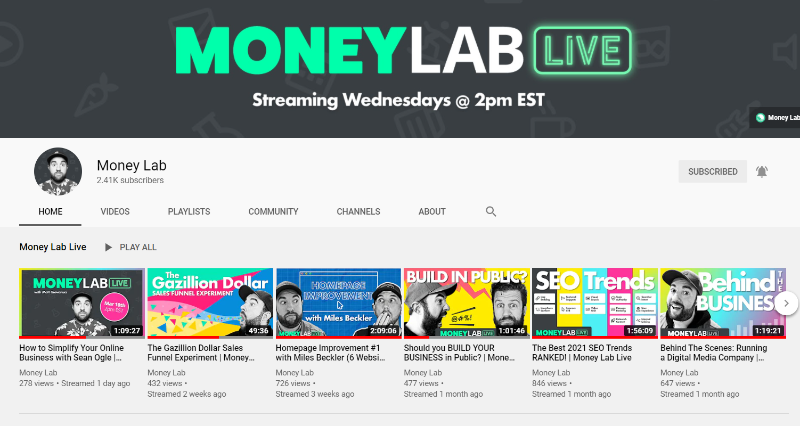


Matt Giovanisci and Sean Ogle were emphasizing this very point in Matt’s video podcast. Matt revealed that his focus is on YouTube and the blog for his brand MoneyLab.
Similarly, Darren Rowse is an Australian professional blogger, author, and entrepreneur. Besides his multiple blogs, he has a huge following on Facebook. I have had a chance to watch his live stream on Facebook.



Interestingly, he hasn’t got so much traction on YouTube yet. No wonder he always does live streaming on Facebook instead of YouTube.
It shows that these experts know where they get traction, and more importantly where they belong on social media. It validates my theory of choosing your strength whilst opting for social media platforms.
3. Choosing the Best Platforms
Once you’ve found your strength and exactly know what to talk about on social media, you can move ahead to the next most important thing, which is the social media platform selection.
It’s obvious that your strengths and social media platform selection go hand-in-hand. Here are some popular social media platforms to consider:
a. YouTube:
YouTube would be the best platform for you if you’re into videos or live streaming, meaning you enjoy being on the camera and talk about stuff. It doesn’t matter whether your niche is camera gear or lifestyle or fitness. What matters is that you prefer video overwriting or podcasting.
b. Instagram:
Instagram is a photo-sharing platform. It’d be an ideal platform for you if you’re into photography or images. For instance, if you’re a photographer or a graphics designer, you can hop on this platform to find the eyeballs and build an audience.
c. Twitter: Twitter is a micro-blogging platform that is best for influencers, politicians, experts, and celebs. It’s a bit difficult for a beginner to start from scratch and build a huge following. People usually try to find well-known people to improve engagement on Twitter. It doesn’t necessarily mean a beginner can’t build a following on Twitter, one can surely build it by showing up consistently on Twitter and engage the audience the right way.
d. Behance: Behance is an avenue for creative designers and experts. If you’re a graphics designer, illustrator, or painter, you might want to look at Behance. It’s a platform for sharing creative work. A lot of graphics designers prefer Behance over Facebook and Instagram because they find a very niche audience there.
e. Pinterest: Pinterest is rather a visual platform where vertical images (pins) are shared. If you’re in female-dominating industries such as parenting, lifestyle, women’s apparel, and health & fitness, this social media platform might be the best platform for you.
f. Medium: Medium is a writing platform where writers, authors, and experts share their expertise, knowledge, and opinions in written form. If you prefer writing articles over making videos or audio podcasts, then Medium might be the right platform for you.
g. Quora: Quora is a questioning and answering platform that anyone who knows some stuff in a specific niche or a walk of life can join in and start building a following. One can ask questions to the experts as well as answer questions from other users.
Those are quite popular social media platforms, but surely the list doesn’t end here.
The point of highlighting some of the platforms is that a social media content plan can’t be solidified unless you choose the right social media platform to put your content out there. Undoubtedly, finding out “what your audience needs” is half the equation, and the next half is “selecting the right platform” to put out content where it belongs.
A social media content plan for a real estate business should encapsulate the information and value for the real estate audience. Not only should it be assisting the real estate businesses in generating leads, but it must also be helping the audience in finding what they need.
#3: Choose a Social Media Scheduling Tool
Social media management for a real estate business is no different than social media management for any other type of business. Realtors may want to send out the weekly listing of the available properties for sale or the studio apartments that are available to rent out.
Let’s admit that it’ll be difficult to go on each one of the social media platforms like Twitter, Linked In, and Facebook to post individually. Therefore, a social media scheduling tool might be the solution.
Most social media managers use some kind of social media management tool for handling social media tasks. I’ve already shed some light on the importance of choosing suitable social platforms and coming up with the best content.
The next most important part of the process is the selection of a social media scheduling tool. A social media scheduling tool allows you to schedule your social media posts for the future. It comes in handy when you’re away or busy and can’t show up on social media platforms to post new content.
ContentStudio is my favorite social media management tool that I have been using for the past three years. Not only does it schedule content on social media, but it also has other features like discovery, analytics, and planner that help a lot.
I have used at least three other social media scheduling tools before, but none of them impressed me this much. Several features make ContentStudio stand out from the rest of the tools. The workspace is one of those features; it allows you to manage social media scheduling for multiple brands.
Similarly, approval workflow allows you to manage social media accounts for your clients. Plus, it also helps when you delegate social media publishing to a trainee or sub-ordinate and want to inspect the social media posts before they go live.
Take a look at some of the best features of ContentStudio:
- Workspaces to manage multiple brands: You don’t need to sign up for multiple accounts as this “Workspaces” feature enables you to manage social media for multiple brands without logging in and out of your ContentStudio account. All you need is to create a separate workspace for each brand.
- Approval workflow for managing clients’ social media: It’s a system designed to make social media scheduling and publishing more efficient and effective by adding an approval system to the workflow. Add your clients to your workflow and they can approve or reject social media posts that you created for them. It minimizes the chances for social media managers to publish unapproved social media posts.
- Schedule blog publishing on WordPress, Medium, and Tumblr: One of the best things about ContentStudio is that it schedules your blog posts on the publishing platforms like WordPress, Medium, and Tumblr.
- Social media analytics to measure performance: Analytics is an essential element of social media marketing. You can’t keep putting out social media content without going through your social media analytics. ContentStudio has a performance analysis feature that showcases social media content performance.
- Building a content calendar for publishing: A content calendar is exactly what it sounds like. It’s a content calendar that gives you information about the content publishing date and time for the most part. You don’t have to use a third-party tool for keeping track of your social media publishing, but instead, use the content calendar available in ContentStudio.
- Content curation for bloggers and brands: Content curation is a process of gathering existing content and use it further without having to create fresh content. ContentStudio’s discovery tool is an excellent option to find content for content curation.
- Social media automation for businesses and individuals: Social media automation is a feature of scheduling your social media content across multiple social media platforms. You can schedule your content on Facebook, Twitter, LinkedIn, Pinterest, and Instagram using ContentStudio.
When you’re developing a social media marketing strategy for a real estate business, I won’t be surprised if a few things slip from your mind.
It’s hard to come up with compelling content that the prospective audience might be interested in. Therefore, it doesn’t matter in which direction you’re tilting in terms of social media platforms, just try to capitalize on the social media scheduling to make the most of your social media existence.
#4: Engage, Interact, and Respond
Putting out valuable content only isn’t going to cut it. You have to be vigilant, active, and on-your-toes to make the most of your social media efforts. Most people that amass a large audience usually spent a lot of time on social media to talk to people, connect with new faces, and help out others.
This enthusiastic behavior doesn’t only require real estate businesses, but instead, it works for every type of business or individual who wants to get traction on social media.
There are no hard and fast rules for engagement and interaction on social media. However, you have to spend some time responding to your audience, so they get to know you genuinely care about them.
Gary Vaynerchuk is one of those early social media influencers who got to one million followers on Twitter almost a decade ago. He revealed that he spent hours and hours on Twitter during the 2008-10 era. And, that’s what made the difference.
One of the things that differentiate Gary from most social media experts and influencers is that he replies to the followers. Maybe, not to everyone, but he surely handpicks a random comment on YouTube or tweet on Twitter to reply.
I came across YouTube channels of two real estate agents from New York. Both have a handful of subscribers on the platform which puts them in a better position.
Cash Jordan has 99K subscribers and Nyasia C has over 47k subscribers on YouTube. When I stumbled upon their YouTube channels, the first thing I did was to check their comments section.
I found out that they often reply to their viewers’ comments, which is exactly what you need to be doing if you’re in the real estate business and trying to crush it on any social media platform whatsoever.
As I said before, they aren’t any specific rules for engagement on social media. All you need is to be polite, empathetic, and helpful to your audience when interacting with them on any platform. The quicker you respond, the better.
#5: Review Your Content Performance
At this stage, you might be well aware of where your real estate audience exists and you’d already been publishing content on those specific social media platforms. One of the essentials of social media marketing is performance measurement, which means you should review your content performance.
Content analysis is crucial to succeeding with your social media content. It doesn’t mean you need to review your content performance every week. However, try to go through your social media statistics every three to four months.
You don’t need fancy tools to review your content performance. All you need is to look through your insights and statistics on social media platforms.
Here are a few things to keep in mind while reviewing your social media content performance:
- What type of content is winning? For instance, if you posted videos and image posts, you must analyze which type of post did well than the other.
- What is helping your audience? It means what is actually making a difference in the followers’ lives. Is it the content or engagement?
- What topics didn’t get any traction? You can look through the stats to find out what topics didn’t get any attention whatsoever. It’ll help you understand what your audience wants from you.
- What social media platform is better than others? One of the easiest ways to figure out where you’re doing great is by looking at the numbers. Analyze where your audience is growing rapidly and getting more engagement.
Once you’ve gone through the social media statistics for a given period, you’d be able to comprehend what type of content is working and what platform is ahead of others for your real estate business.
Some realtors make the mistake of joining the same platform they find their competitors on, so they try to copy them. What they should do instead is test out their own strategies across multiple platforms and see what works for them. To help maximize success, realtors should consider hiring a real estate SEO expert who can provide guidance with digital presence and visibility optimization.
How Would You Build a Real Estate Social Media Strategy?
I tried my best to keep things as simple as possible regarding creating a social media marketing strategy for a real estate business.
You shouldn’t really reinvent the wheel when there are proven strategies and tactics available. You may have to tweak or add tailor-made steps after a while, but these are pretty much the basics that every type of business needs to know for social media marketing.
Furthermore, I’m interested in listening to you. Let’s turn the table around and see what you have to say about building a social media strategy for a real estate business.
What would you do?
Let us know in the comments below.
Hassaan Khan
Hassaan Khan is a freelance writer for SAAS companies, e-commerce stores, and niche websites. He has contributed to SEMrush, ThriveGlobal, BloggingCage, AllBloggingTips, and several other publications. He builds niche websites, publishes e-books, and helps website investors with his done-for-you niche site-building service.

